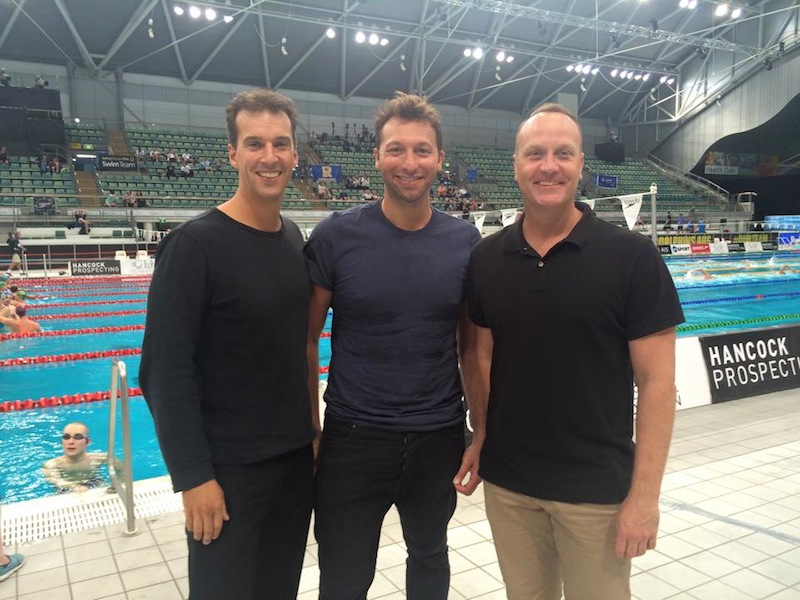Birmingham Uni Research Points To Debilitating Psychological Effect Of Irrational Beliefs As Athletes Get Set At Commonwealth Games

The University of Birmingham has a fine team of world-leading experts in sports performance and psychological wellbeing lined up to talk to media during the Commonwealth Games in Britain’s second-largest city, where six days of racing get underway from Friday.
With Craig Lord on writing retreat, SOS will not be covering the event in usual depth this year but among key topics on the eve of any competition is the mind and psychological wellbeing, stretching from the kind of preparation for performance that a child gets from an early age through to issues that the likes of Daniel Kowalski (see below opinion) and Michael Phelps have raised in the context of ‘success stories’ that did not unfold without hidden depths of despair.
The University of Birmingham has offered a timely paper on that subject from Paul Mansell, PhD Candidate, Stress in Sport, and we’re more than happy to reproduce it, with thanks.
The University’s team of experts includes Prof. Joan Duda, whose great work we have highlighted at SOS and before that, SwimVortex, including these two pieces from the archive:
- A Balance Of Mindset And Mental Health
- Climate Change – Empowering Coaching, A Game Changer From Prof. Duda & Team
University of Birmingham Opinion
As athletes prepare physically and technically for the Commonwealth Games, it is important that they also prepare well psychologically as the pressure mounts
Paul Mansell PhD Candidate, Stress in Sport, University of Birmingham
The way in which athletes think influences psychological wellbeing. Understanding this can help them not only to experience positive mental health, but to increase the likelihood of performing well at the Commonwealth Games.
Research suggests that the extent to which individuals possess irrational beliefs may influence their views about stress and their psychological wellbeing. Taken together, these beliefs may lead to a deterioration in performance.
Irrational beliefs are fixed, illogical and extreme beliefs that are widely associated with poor mental health. Irrational beliefs may be categorised into primary irrational beliefs of demandingness (e.g., “I want, therefore I must…”), and three secondary irrational beliefs of ‘awfulizing’ (e.g., “it would be absolutely terrible if I did not win), frustration intolerance (e.g., “I can’t stand it if I lose”), and depreciation (e.g., “losing makes me a failure”).
In contrast, rational beliefs (e.g., “I want to, but that does not mean I must, be successful”) can support greater psychological wellbeing and performance. Often, demandingness beliefs may be held in conjunction with secondary irrational beliefs, so an athlete may believe that they must be successful in the Commonwealth Games (demandingness), and that if they are not, they would be a failure as a person (depreciation).
Indeed, it is depreciation beliefs which are considered particularly damaging to psychological wellbeing. As such, it is possible to see how when an athlete thinks in this way, they may feel additional pressure to perform well, and as a result, this may negatively influence their performance.
So why does this happen? Research specific to athletes has demonstrated that when they possess irrational beliefs, there may be several reasons why psychological wellbeing and performance may deteriorate.
Our research has established that when an athlete possesses irrational beliefs it increases the likelihood of viewing stress as debilitative, seeing a situation as a threat and not as a challenge, and experiencing worse psychological health. This suggests that irrational beliefs may set off a chain reaction of behavioural and emotional responses that are not conducive to the high levels of performance demanded at the Commonwealth Games. Although there is an argument that the short-term effects of irrational beliefs may actually be useful for athletes, research overall suggests that irrational beliefs are related to psychological distress and worse performance. For example, golfers who used irrational self-talk were found to perform worse than those who used rational self-talk.
Given the importance of psychological wellbeing in influencing performance, controlling the way in which athletes think as they approach the competition is vital. As such, the first step that athletes could implement is to recognise that they are able to exert control over their beliefs.
Aligned with the framework suggested by Rational Emotive Behaviour Therapy, athletes should be taught to recognise that an event in itself does not cause negative behavioural and emotional consequences. Instead, it is their beliefs about an event – and in the uncertain domain of elite athletics, the nature of their beliefs is something that they can exert control over.
Coaches should endeavour to promote more rational ways of thinking, such as promoting unconditional self-acceptance (e.g., “If do not perform well, it does not make me a complete failure, only that I have failed this time”). Adopting these beliefs does not have to diminish an athlete’s desire to win, but this style of flexible thinking can only serve to facilitate psychological wellbeing and performance compared to irrational beliefs.
End of Opinion
On the Eve Of Birmingham Games, A Reminder Of The Hidden Pressures That Athletes Can Face Unbeknown To The Crowd Tuning In On Race Day

The theme of mental wellbeing in swimming is a big one with many angles and streams that lead to and from the central pond of knowledge from where the research above flows.
In Commonwealth context, the theme reminds us of Daniel Kowalski, the six-times Games medallist who last year spoke to Yahoo Australia for a series about his mental struggles at the height of his successful swim career hauling 27 medals for Australia in international waters, topped by four Olympic and three World long-course podiums and the 400-1500m double-title repeat triumphs at World short-course championships in 1993 and 1995.
Here’s a touch of that:
2021: Daniel Kowalski: Threats Led To Spiral Of Depression & Bulimia
Daniel Kowalski, winner of gold, silver and two bronzes at the 1996 and 2000 Olympic Games for Australia, went into a spiral of depression and bulimia after he felt cajoled into making his sexuality public.
The former Australian international middle and distance freestyler reveals the depth of his despair and what caused it to Yahoo Sport Australia for its new ‘Mind Games‘ series.
Kowalski came out as gay back in 2010, five years after telling his family and close friends. He only went public after receiving threats: if he didn’t come out himself, those calling him would out him.

“In 2005 I had accepted who I was and I told my family and my closest friends,” Kowalski told Yahoo Sport Australia last year. He explained:
“I made a very conscious decision that who I was was between me and them and I didn’t feel I had this need to come out publicly. It wasn’t until about 2010 that I started receiving calls from a number of publications saying that they were going to ‘out’ me. I really felt as though a part of me was being taken away and robbed from me, so I decided to take matters into my own hands and chose to come out publicly and did it on my own terms.”
Daniel Kowalski – image: Reunited in 2015: (r-to-l) – Daniel Kowalski, Ian Thorpe and Matt Welsh, Sydney 2000 teammates and medal winners for Australia – courtesy of Swimming Australia Ltd
Listen to Daniel Kowalski talk about Mind Games in the pool, the moment Germany’s Jorg Hoffmann sat on his lap in the call room and “scared the living daylights” out of him; why he felt “petrified” at his first Olympics and would have preferred to be a kind watching the Games from back home in his living room.